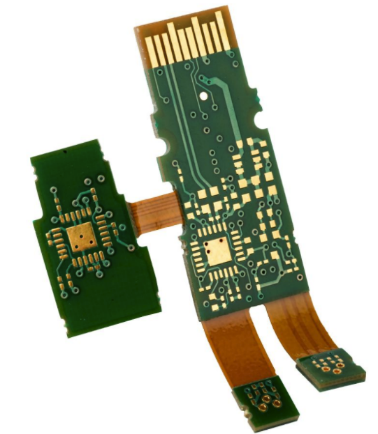FPC stands for Flexible Printed Circuit, also known as flexible circuit boards or soft boards. It is a highly reliable flexible printed circuit made by polyimide or polyester film.


According to the definition of JIS C5017, single and double-sided Printed Circuit Boards (PCB) uses copper foil lamination on PET or PI substrate either to form single-sided lines on one-sided PCBs or double-sided lines on double-sided PCBs respectively.
FPCs are mainly used in movable or bent electronic products such as MP3 and MP4 players, portable CD players, DVDs, mobile phones, Automobiles, etc.
The FPC On Board (FOB) process is a brand-new methodology which involves soldering FPCs and PCBs together by SMT (Surface Mount Technology) reflow soldering. It combines both soft and hard board bonding processes. The FPC soldered into the PCB is treated as an exceptional, special device.
 The FOB process has the following advantages:
The FOB process has the following advantages:
1.This production process does not require specialized equipment.
2.The ability to combine two mechanisms together allows for shortening the process route which leads to greater production efficiency.
3.PCB and FPC joint-soldering method is highly consistent and reliable.

In the coming years, increasingly complex and expensive flexible circuit boards will require updated assemblies and new hybrid circuit boards. The challenge facing flexible circuit boards is in strengthening its technological benefits and blending in with computers and telecommunications to meet consumer demand in the active and dynamic market.